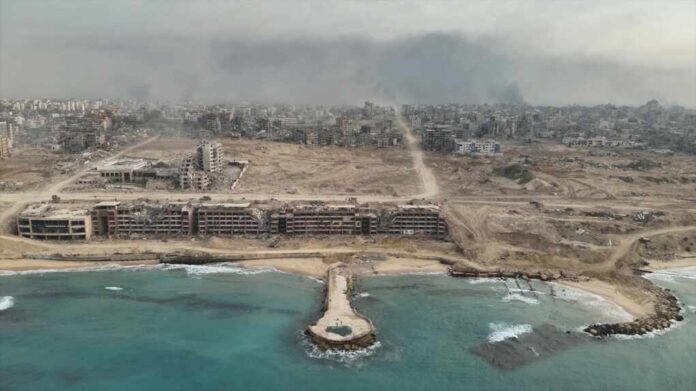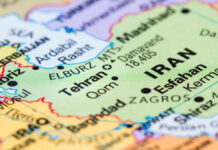
Gaza’s devastated cash economy is now so broken that desperate families are forced to hand over nearly half their money to shady middlemen just to buy bread—exactly the kind of bureaucratic disaster and criminal exploitation that only ever seems to follow when government power runs unchecked and common sense is thrown out the window.
At a Glance
- Gaza’s banks and ATMs have been nearly wiped out, leaving 2 million people scrambling for survival cash.
- Cash brokers and black market dealers now charge up to 40% commissions—meaning Gazans lose almost half their money simply to spend it.
- Inflation has exploded by 230% and unemployment has soared past 80% as the territory’s financial system collapses under blockade and war.
- Humanitarian aid and digital payment attempts are failing because daily transactions still require physical cash, which is almost impossible to get.
Gaza’s Cash Crisis: Bureaucratic Chaos Breeds Criminal Opportunity
Gaza’s cash economy is in a free fall that would make even the most spend-happy bureaucrats in Washington blush. The territory, blockaded and battered by war, now functions on a currency system so broken that the dollar bills and shekels are literally falling apart—while Gazans pay mafia-like brokers a 40% premium just to get access to their own money. Imagine walking into your local bank and being told you need to fork over nearly half your savings just for the privilege of withdrawing your own cash. That’s the gut-wrenching reality for over 2 million people, most of whom are jobless, hungry, and locked in a system where the only winners are the shadowy middlemen who thrive when government order collapses and personal responsibility disappears.
“There is no money, no cash, no change.”
With nearly all banks and ATMs out of service, war-torn Gazans say they are relying on unregulated cash brokers, paying commissions of up to 40%, to access shekels for daily expenses.#Gaza #Israel #Palestine pic.twitter.com/1gQv31RlX5— Al Arabiya English (@AlArabiya_Eng) July 11, 2025
The destruction of Gaza’s financial infrastructure is staggering. Only a handful of the territory’s 56 bank branches remain, and 91 ATMs—serving an entire population—are now mostly just twisted metal or empty shells. Israel’s refusal to allow new cash into Gaza, intended to choke off Hamas, has instead left ordinary families with nothing but worn bills, rejected by merchants unless they pay yet another fee to “money repairmen.” When cash is scarce, it becomes a commodity, and the government’s heavy-handed intervention—always with the best of intentions, of course—has created a perfect storm for black market profiteers and criminal networks to feast on the misery of the powerless.
Watch a report: ‘All pieces point to Israel’s goal of pushing Palestinians away from Gaza’
Inflation and Unemployment: The Predictable Results of Currency Manipulation and Blockade
When government policy distorts markets and restricts the free flow of goods and currency, the result is always the same: inflation explodes, jobs vanish, and everyday people pay the price. Gaza now faces an inflation rate of 230%, with the cost of basic goods like flour and cooking oil rising by thousands of percent. Over 80% of Gazans are out of work, and even those lucky enough to have jobs are paid through digital transfers that are utterly useless in a society where every shop, every transaction, still runs on physical cash. The attempts to drag Gaza into a cashless future—by rolling out digital wallets—have fallen flat, because the underlying infrastructure simply doesn’t exist. Without access to real, spendable cash, all the digital innovation in the world is just bureaucratic window dressing on a burning house.
Who Benefits? Not the People—But the Bureaucrats, the Brokers, and the Criminals
When governments and unaccountable authorities control every aspect of daily life—including the money in your pocket—there’s only one group that ever wins: those with the connections and the muscle to exploit the system. In Gaza, cash brokers have become the new power brokers, taking advantage of chaos to charge obscene commissions for basic transactions. Some experts liken the situation to a “mafia-like” economy, where the only way to survive is to pay off whoever controls access to the dwindling piles of cash. And all the while, the international community throws up its hands and blames “the situation,” as if this disaster just materialized out of thin air, rather than being engineered by years of failed policy, endless aid with no accountability, and a total disregard for the basic principles of economic freedom.

























